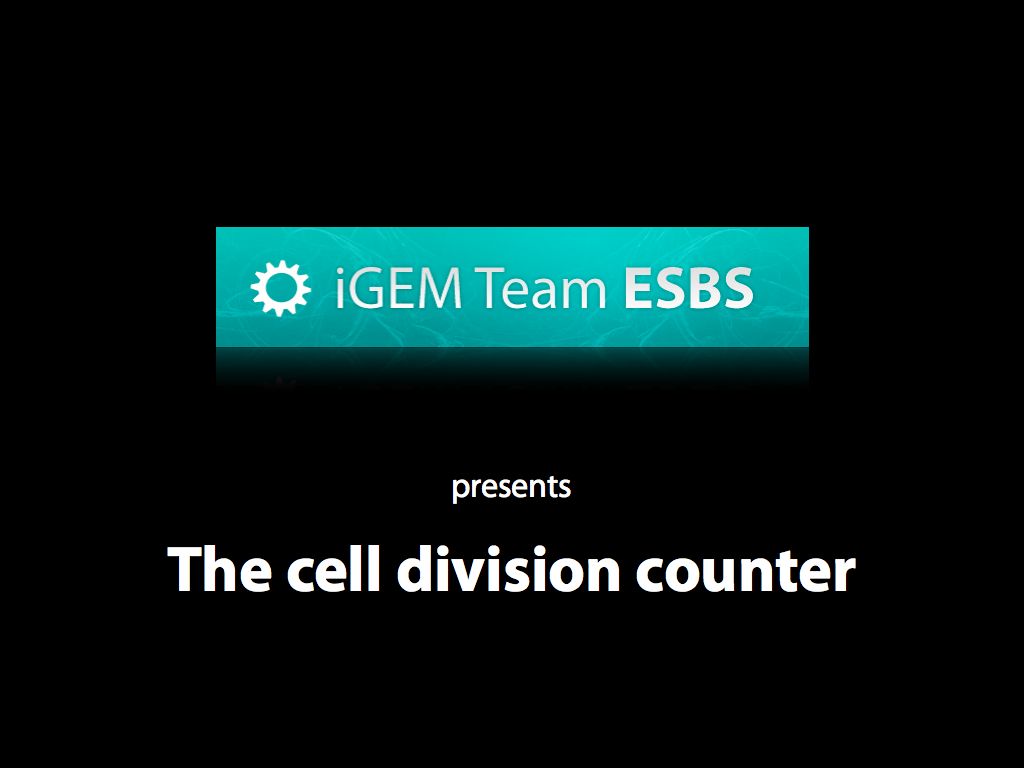Team:ESBS-Strasbourg/Project
From 2008.igem.org
(→Project Details) |
|||
| Line 13: | Line 13: | ||
| - | + | ||
| - | + | ||
[[image:Esbs_anim_cover.jpg|220px|thumb|'''[[Team:ESBS-Strasbourg/Animation|Animation]]''']] | [[image:Esbs_anim_cover.jpg|220px|thumb|'''[[Team:ESBS-Strasbourg/Animation|Animation]]''']] | ||
| - | |||
| - | |||
| - | |||
| - | |||
| - | |||
| - | |||
| - | |||
| - | |||
| - | |||
| - | |||
| - | |||
| - | |||
| - | |||
| - | |||
| - | |||
| - | |||
| - | |||
| - | |||
| - | |||
| - | |||
Revision as of 00:23, 29 October 2008
Project summary
Our team aims to establish a regulatory network over several cell generations in budding yeast (Saccharomyces cerevisiae). This model organism offers ideal conditions for this purpose as it has been and still is the primary source for studies on the cell cycle. Furthermore, generation times are in the right order to be able to express and also to degrade proteins within one generation time in a predictable manner. There is also the advantage of features like easy transformation and direct recombination.
We want to construct a toggle switch that is triggered by cell cycle dependent factors. The construction consist of two subassemblies of identical composition, each with a positive feedback loop for the own expression pattern and a repression of the competing module. To get the system switching, we want to tag the two responsible protein species, the self-Activator (sA) and the Repressor (R), with APC degradation motifs. The Anaphase Promoting Complex (APC) is a ubiquitin ligase that is exclusively active from Anaphase at the end of mitosis until late G1. Proteins are degraded with a half-life time of approximately four minutes, so that the initial expression pattern should disappear quickly. Switching of the system requires a further factor that persists during APC activity and cross-activates the previous silent module. This cross-Activator (cA) shall always be expressed together with the two already mentioned factors (sA, R), but in lower quantity to not disturb the system beyond the APC window.
Interaction of those three transcription factors and the required concentrations at the right time will be the biggest challenge of the project. Modeling is therefore not only a sideline but at the very basis of the development of a functional concept. We also intend to test several alternatives for each device to allow a broader choice of components that fit the requirements set by the simulations.
The described system would result in a binary expression pattern, like for example GFP expression in every other cell cycle (0-1-0-1). There shall be the possibility to easily extend the system by adding further "bits" of similar construction. The second “bit” for example should be blindfolded for every other APC occurrence to result in the expression pattern 0-0-1-1. This could be achieved through cutting away the APC degradation motifs by a site specific protease under the regulation of the first “bit”. The resulting device would thus be the basis for a binary cell division counter.
 "
"


